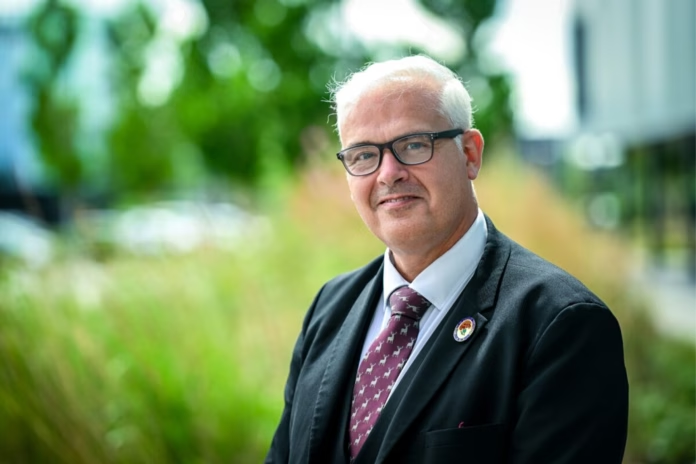Left wing Labour councils are unlikely to return to the confrontational tactics employed by Militant in managing council finances during the 1980s, according to the leader of London Borough of Haringey.
Joseph Ejiofor was appointed leader of the council following Labour’s victory – albeit with a reduced majority – in May’s council elections, following the replacement of a number of sitting councillors with Momentum-backed candidates.
In an interview with Radio 4’s Today programme, Ejiofor said national Labour leaders are keen to demonstrate that councils with a more left-wing bent could manage council finances responsibly.
He said: “As a Labour council we have to balance our budget.
“This is not Militant in the 1980s, right? One of the first things that happened last year when we came into the manifesto process was that John McDonnell came to Haringey, talked to Haringey Labour Party members and explicitly expressed to them that it is important that we run a prudent, responsible authority.”
In 1985, the “rate-capping rebellion” saw fifteen left wing councils threatening to refuse to set any budget at all, or set an illegal budget for the financial year 1985/6.
Their aim was to protest against rate capping introduced by the Conservative government to rein in high spending by some Labour-run councils.
As Greater London Council deputy leader and chair of finance, McDonnell played a major role in the rate-capping rebellion, which ended with surcharges for Lambeth and Liverpool councillors after the courts ruled they were guilty of wilful misconduct.
Following the rebellion, government introduced legislation setting a deadline for approving a budget.
Earlier this year, Militant, now renamed the Socialist Party, called on Haringey to use its reserves to prevent cuts in the borough whilst building a mass campaign against government grant reductions.
Professor Tony Travers, director of the Institute of Public Affairs at the London School of Economics & Political Science, said: “The leader’s comment was interesting, especially in his rejection of the possibility of setting an under-funded budget.
“The national Labour leadership knows that it, in part, would be damaged if Haringey failed in any way.”
Travers added that the Ejiofor’s remarks struck a fairly moderate note.
“This is doubtless what John McDonnell hoped would happen. Mr McDonnell himself was rather more radical when a member of the GLC in the mid-1980s…”
The council has not revealed its proposed approach to budget setting for 2019/20 but has already announced it wants to find £1.6m to exempt poor residents with children from council tax.
In his interview, Ejiofor raised the prospect that Haringey could take a different approach and become the first council to hold a referendum to propose an increase in council tax levels above the government’s cap, currently at almost 6% including the social care precept.
He said: “Council tax levels have been frozen in this borough for the past eight years. I think there is a conversation to be had about whether or not we move to correct that dislocation of council tax revenue.
“We will look at what we need to do to fund things going forward. Then we will let you know.”
The bitter deselection battle which took place in Haringey prior to the May elections followed a campaign against the former council regime’s policy to pursue a joint venture with developer LendLease to redevelop council homes in the borough.
In July, Room151 reported that the new council will lose £2.5m in sunk costs, £500,000 in compensation to LendLease plus revenue of £250,000 a year as a result of its decision to scrap the Haringey Development Vehicle.
The vehicle had proposed to build 6,400 homes over 20 years but ran into opposition over the amount of social housing to be included, as well as protests over the wisdom of partnering with a private sector partner.
The council has since voted to scrap the project and replace it with a standalone housing company, which Haringey’s Labour Party manifesto pledged would provide 1,000 homes by 2022.
Ejiofor said: “We believe we are able to deliver the homes that Haringey residents need in a different way, quicker, and we have a general belief as a party that public land should remain in public ownership.”










